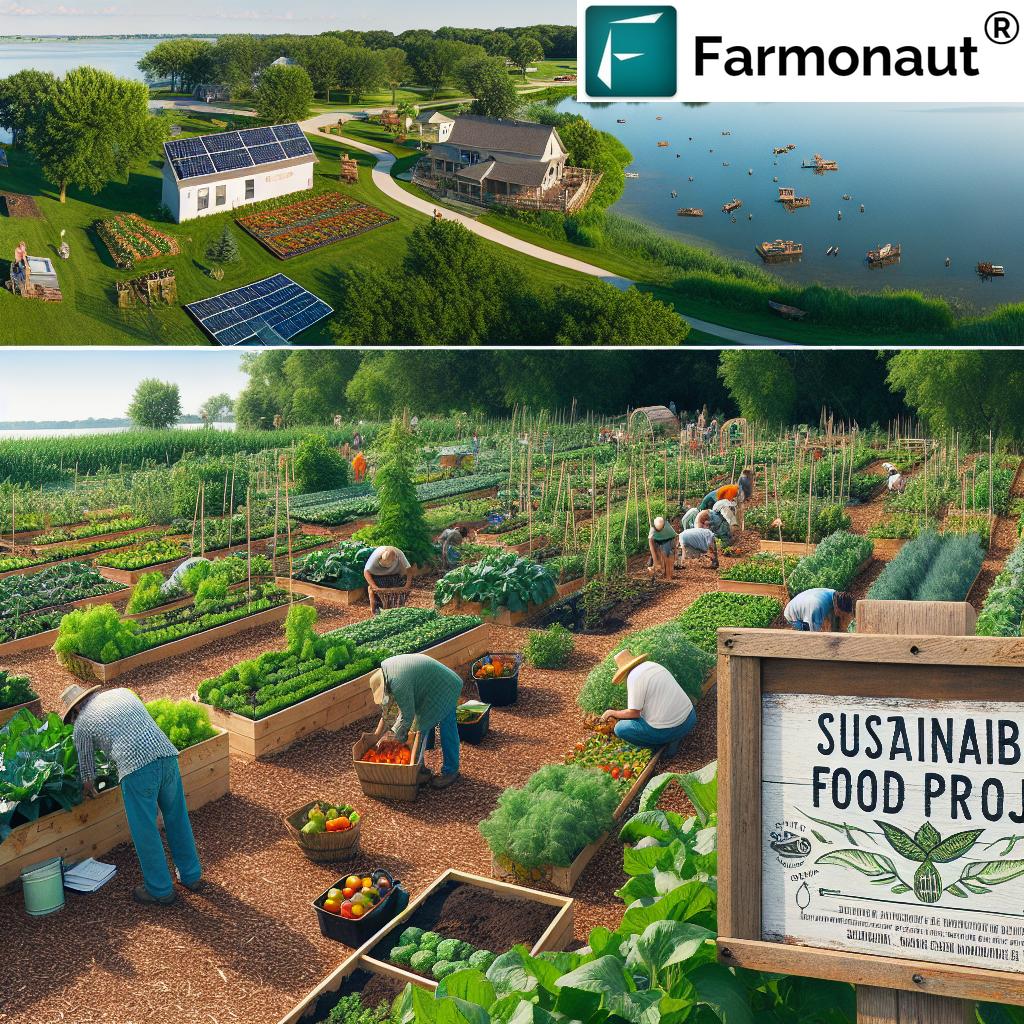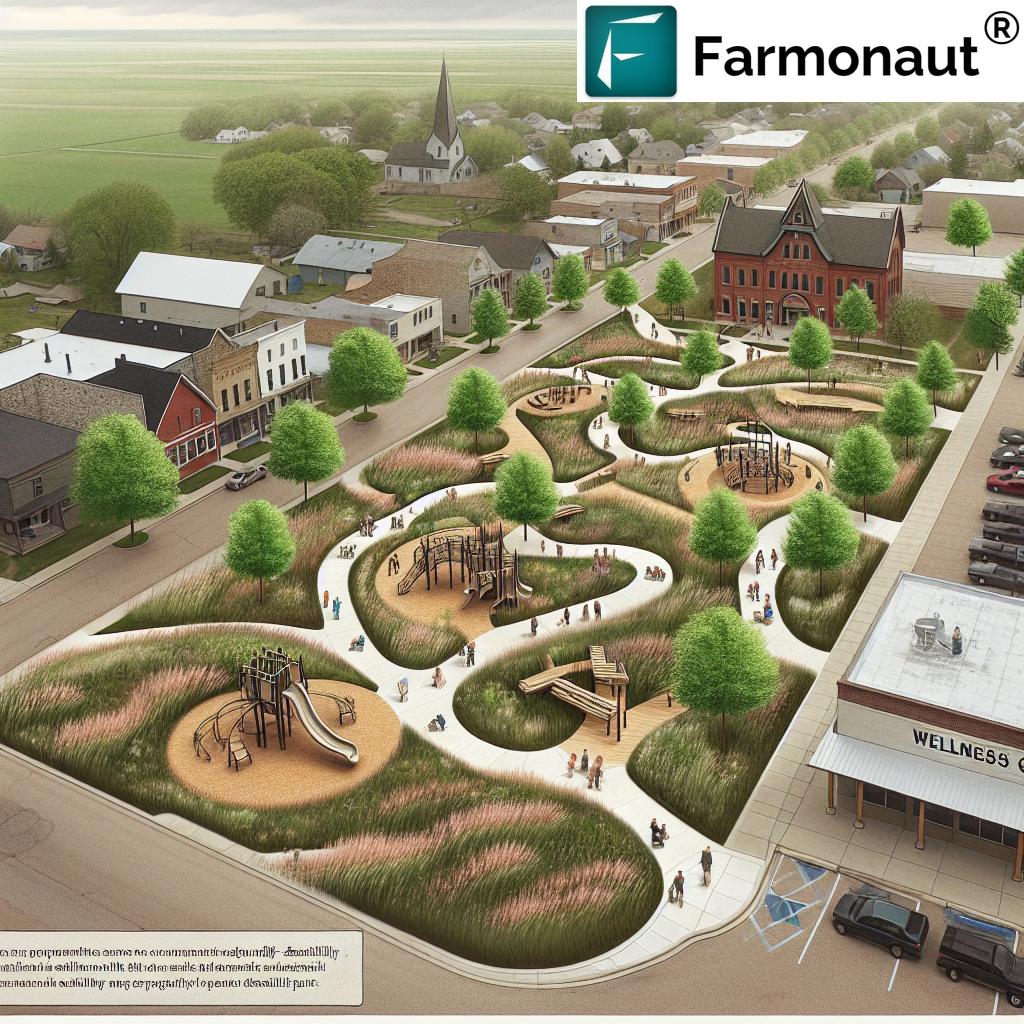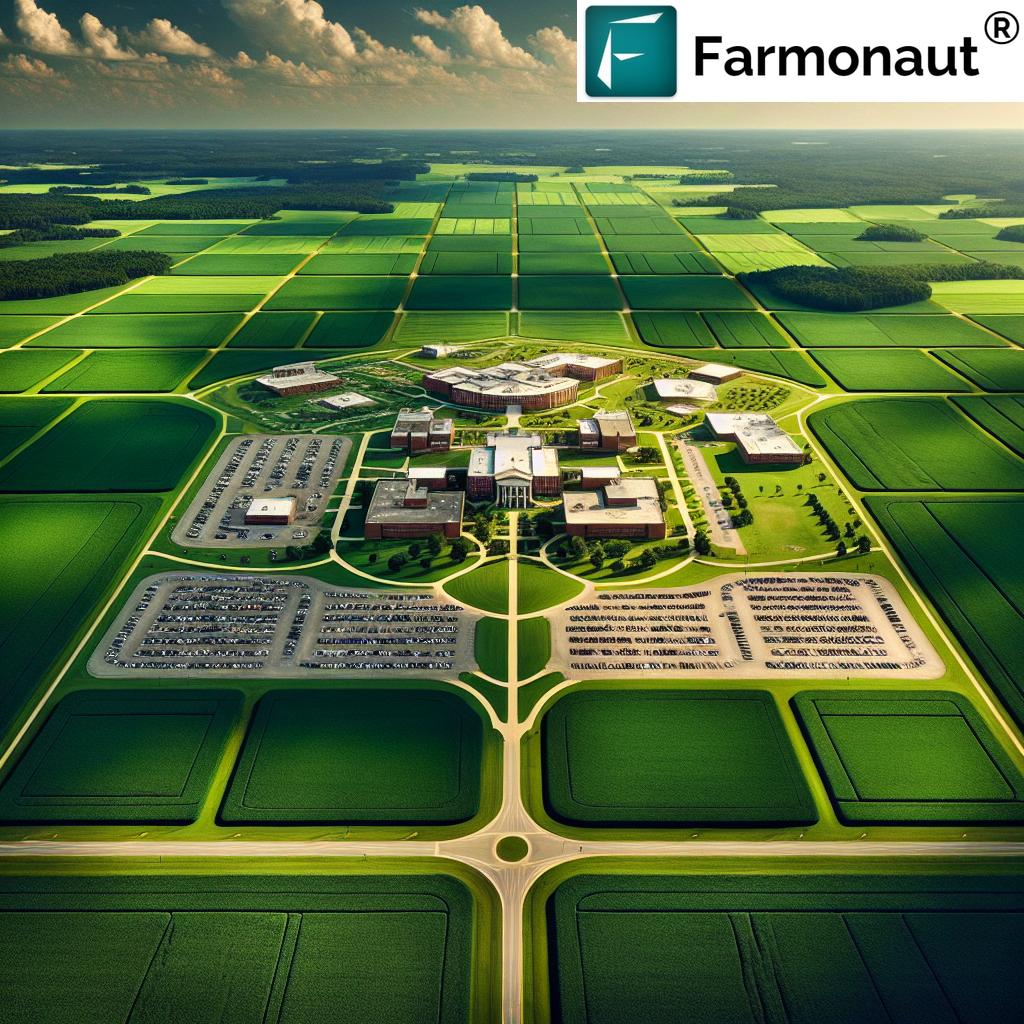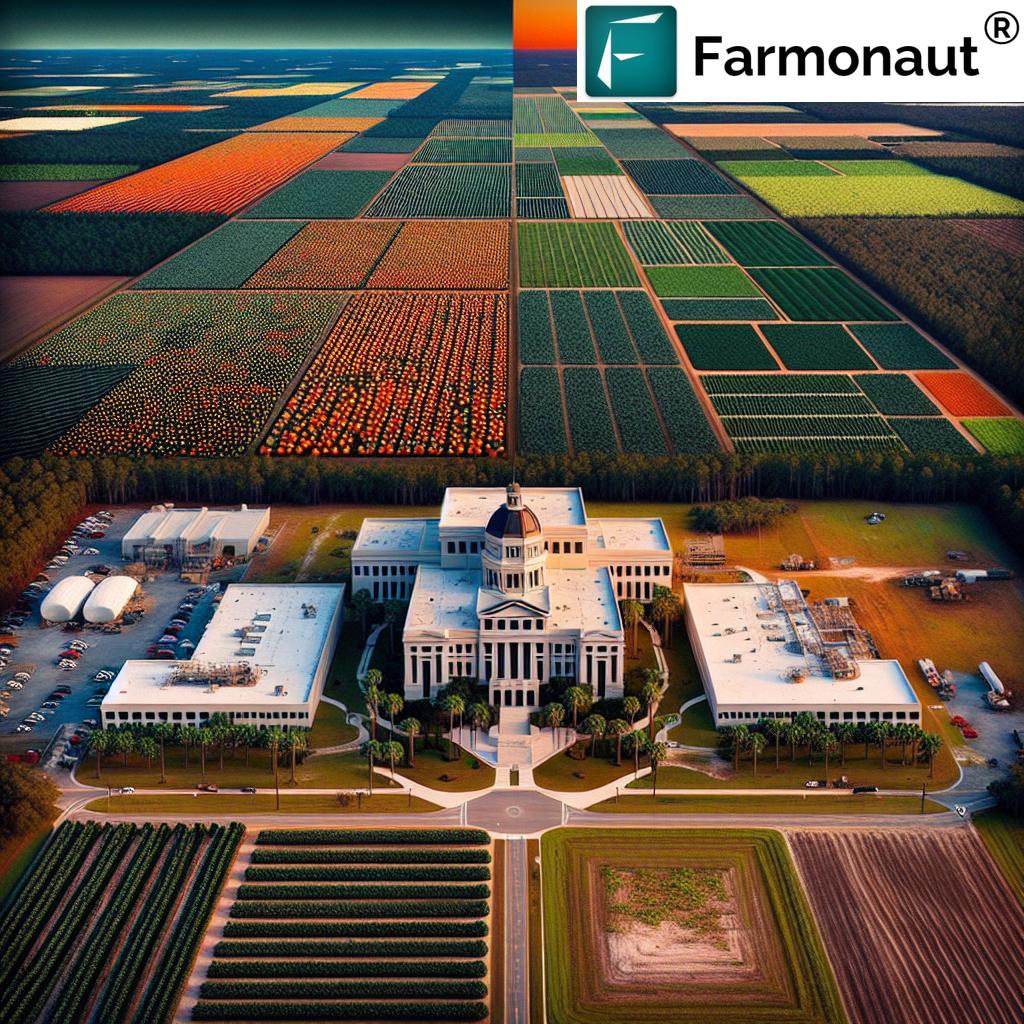Sustainable Community Grants: East Central Illinois’ Innovative Approach to Wellness and Environmental Stewardship
“The LHC 2025 grant cycle supports dual initiatives: sustainable food economies and mental wellness programs in East Central Illinois.”
We are thrilled to announce an exciting development for the communities of East Central Illinois. The Lumpkin Family Foundation has unveiled its Land, Health, Community (LHC) 2025 grant cycle, marking a significant step towards fostering healthier, more sustainable communities in our region. This innovative program acknowledges the vital connection between environmental stewardship and community well-being, offering a holistic approach to community development that we believe will have far-reaching positive impacts.
Understanding the LHC 2025 Grant Cycle
The LHC 2025 grant cycle is set to begin accepting Letters of Inquiry from January 24 through February 28, opening up opportunities for a wide range of organizations working within East Central Illinois. This grant program is designed with a dual focus: creating resilient local food economies and supporting initiatives that enhance holistic community wellness.
At its core, the LHC program recognizes the intrinsic link between land use, community health, and environmental sustainability. By supporting projects that span from accessible park developments to campus sustainability gardens, the program aims to create a ripple effect of positive change throughout our region.

Key Focus Areas of the LHC 2025 Grant Cycle
- Resilient Local Food Economies: Supporting initiatives that strengthen local food production, distribution, and access.
- Environmental Education: Funding projects that increase community engagement with nature and promote environmental awareness.
- Mental Wellness Programs: Recognizing the importance of mental health in community vitality and supporting related initiatives.
- Accessible Community Spaces: Developing parks and recreational areas that are inclusive and promote physical activity.
- Sustainable Campus Initiatives: Encouraging educational institutions to implement eco-friendly practices and create green spaces.
These focus areas demonstrate the comprehensive approach of the LHC program, addressing multiple facets of community health and sustainability.
Previous Grant Success Stories
The impact of the LHC program is already visible through the success of previous grantees. In 2024, several notable projects received funding, showcasing the diverse range of initiatives supported by the foundation:
- Camp New Hope: Received $50,000 for restoring native habitats and improving accessibility for educational purposes.
- Casey in Action: Awarded $30,000 to construct an accessible walking path in Fairview Park.
- EIU Department of Biological Sciences: Granted $15,000 to develop a Campus Sustainability Garden.
- Fit-2-Serve: Allocated $40,000 to expand year-round food production spaces.
- Friends of Lake Shelbyville: Provided $42,000 for an accessible kayak launch installation.
- RISE Behavioral Health and Wellness: Awarded $50,000 for their Stronger Together program focusing on family and community wellness.
- Think Regeneration: Received $25,000 to launch a “Food is Medicine” program addressing health issues through improved access to healthy foods.
- Village of Strasburg: Granted $50,000 for local park renovations.
These projects exemplify the diverse ways in which the LHC program is making a tangible difference in our communities, from enhancing physical infrastructure to promoting innovative health initiatives.
The Importance of Sustainable Community Initiatives
Sustainable community initiatives are crucial for the long-term health and prosperity of East Central Illinois. By focusing on projects that promote environmental stewardship, community health, and local food systems, we’re investing in a future where our communities are more resilient, healthier, and more connected to the natural world around us.
The LHC program’s emphasis on sustainable food economies is particularly significant. By supporting local food production and distribution, we’re not only enhancing food security but also reducing the carbon footprint associated with long-distance food transportation. This aligns perfectly with broader goals of sustainability and climate change mitigation.
Moreover, the focus on mental wellness grants recognizes the often-overlooked aspect of community health. By supporting programs that address mental health, we’re helping to create more robust, supportive communities where individuals can thrive.
Environmental Education and Community Engagement
One of the key aspects of the LHC program is its support for environmental education and community engagement with nature. This focus is crucial for several reasons:
- It helps build a more environmentally conscious community.
- It encourages people to spend more time outdoors, which has proven benefits for physical and mental health.
- It fosters a sense of stewardship for local natural resources.
- It can inspire future generations to continue these sustainable practices.
Projects like the Campus Sustainability Garden at Eastern Illinois University (EIU) are excellent examples of how environmental education can be integrated into community spaces. Such initiatives not only provide educational opportunities but also contribute to local food production and community engagement.

Accessible Park Projects: Enhancing Community Well-being
The LHC program’s support for accessible park projects is another crucial aspect of its commitment to community wellness. Projects like the accessible walking path in Fairview Park and the kayak launch at Lake Shelbyville demonstrate how these grants are making outdoor recreation more inclusive and accessible to all community members.
Accessible parks and recreational areas offer numerous benefits:
- Promote physical activity and overall health
- Provide spaces for community gatherings and social interaction
- Offer opportunities for stress relief and mental health improvement
- Enhance the overall quality of life in the community
By investing in these projects, the LHC program is helping to create more vibrant, inclusive communities where everyone has the opportunity to enjoy the benefits of outdoor spaces.
Local Food Economy Support: A Path to Sustainability
One of the cornerstone focuses of the LHC program is supporting and developing resilient local food economies. This emphasis is crucial for several reasons:
- Reduces dependency on long-distance food transportation, lowering carbon emissions
- Supports local farmers and food producers, strengthening the local economy
- Enhances food security by diversifying food sources
- Promotes fresher, more nutritious food options for community members
Projects like the expansion of year-round growing spaces by Fit-2-Serve and the “Food is Medicine” program by Think Regeneration exemplify how the LHC grants are supporting this vital aspect of community sustainability.
Mental Wellness: A Critical Component of Community Health
The LHC program’s recognition of mental wellness as a crucial aspect of community health is a forward-thinking approach. By offering Wellness Grants, the program acknowledges the importance of supporting the mental health of those who serve our communities.
These grants can be used for various purposes, including:
- Staff wellness programs
- Mental health resources and training
- Stress reduction initiatives
- Team-building activities
By supporting the mental health of community leaders and organization staff, we’re indirectly benefiting the entire community. Healthy, well-supported leaders are better equipped to serve and make positive impacts in their roles.
The Impact on Rural and Urban Areas
The LHC program’s reach extends to both rural and urban areas within East Central Illinois, recognizing that each faces unique challenges and opportunities when it comes to sustainability and community wellness.
In rural areas, the grants can help:
- Preserve agricultural land and promote sustainable farming practices
- Improve access to health services and recreational facilities
- Support local food producers and strengthen rural economies
In urban settings, the program can contribute to:
- Creating green spaces and urban gardens
- Enhancing community engagement through accessible parks and recreational areas
- Supporting urban agriculture initiatives
This dual focus ensures that the benefits of the LHC program are felt across the diverse communities of East Central Illinois.
“Previous LHC grantees have implemented diverse projects, from native habitat restoration to ‘Food is Medicine’ initiatives.”
How to Apply for LHC 2025 Grants
For organizations interested in applying for the LHC 2025 grants, here are the key details:
- The application period for Letters of Inquiry opens on January 24 and closes on February 28.
- An informational webinar is scheduled for January 23 at 2 p.m. to provide more details about the program and application process.
- Eligible applicants include nonprofits working within East Central Illinois.
- Proposals should align with the program’s focus on creating resilient local food economies and supporting community wellness initiatives.
We encourage all eligible organizations to consider applying for these grants. Your innovative ideas and dedication to community improvement could make a significant difference in East Central Illinois.
The Role of Technology in Sustainable Community Development
While discussing sustainable community initiatives, it’s worth noting the increasing role of technology in supporting these efforts. Innovative solutions can help communities better manage resources, monitor environmental conditions, and make data-driven decisions for sustainability.
For instance, satellite-based technologies like those offered by Farmonaut can provide valuable insights for agricultural management and land use planning. These tools can help farmers optimize resource use, monitor crop health, and implement sustainable farming practices, all of which align with the LHC program’s goals of supporting local food economies and environmental stewardship.
Farmonaut’s satellite-based crop health monitoring and AI-driven advisory systems could be particularly useful for projects focused on sustainable agriculture and food production. While not directly affiliated with the LHC program, such technologies represent the kind of innovative approaches that can complement and enhance community sustainability efforts.
Wellness Grants: Supporting Organizational Health
In addition to the main LHC grants, the Lumpkin Family Foundation has introduced a separate Wellness Grant opportunity. This innovative approach recognizes the importance of supporting the health and well-being of those who work tirelessly to improve our communities.
Key details of the Wellness Grants include:
- Available to grantees from the previous three years
- Provides up to $2,500 for wellness activities benefiting organizational staff and leadership
- Application period opens on June 2 and closes on June 16
These grants demonstrate the Foundation’s holistic approach to community development, acknowledging that the health of community organizations is crucial to the overall health of the community.
Looking to the Future: The Long-Term Impact of LHC Grants
As we look ahead, the potential long-term impacts of the LHC grant program are significant. By investing in sustainable community initiatives, mental wellness programs, and local food economies, we’re laying the groundwork for more resilient, healthier communities in East Central Illinois.
Some potential long-term outcomes include:
- Increased community engagement with nature and environmental issues
- Improved physical and mental health outcomes for community members
- More robust local food systems and increased food security
- Enhanced community spaces that promote social interaction and physical activity
- Greater awareness and implementation of sustainable practices
These outcomes align perfectly with broader goals of sustainability and community development, positioning East Central Illinois as a leader in innovative approaches to community wellness and environmental stewardship.
Grant Program Comparison
| Grant Type | Focus Areas | Eligible Applicants | Example Projects |
|---|---|---|---|
| LHC Sustainability Grants |
|
Nonprofits in East Central Illinois |
|
| Wellness Grants | Staff health support for organizations | Previous LHC grantees (last 3 years) |
|
The Role of Community Participation
While the LHC grants provide crucial funding and support, the success of these initiatives ultimately depends on community participation and engagement. We encourage all residents of East Central Illinois to get involved in these projects, whether through volunteering, participating in community events, or simply utilizing the new resources and spaces being created.
Community participation can take many forms:
- Volunteering at local parks or community gardens
- Attending environmental education programs
- Supporting local farmers and food producers
- Participating in community wellness initiatives
- Providing feedback and ideas for future community projects
By actively engaging with these initiatives, we can amplify their impact and create lasting positive change in our communities.
Conclusion: A Brighter, Sustainable Future for East Central Illinois
The Land, Health, Community (LHC) 2025 grant cycle represents a significant step towards creating more sustainable, healthier communities in East Central Illinois. By focusing on local food economies, environmental stewardship, and community wellness, these grants are helping to build a foundation for long-term community resilience and vitality.
We encourage all eligible organizations to explore these grant opportunities and consider how they might contribute to this exciting vision for our region. Together, we can create a more sustainable, healthier, and more vibrant East Central Illinois for current and future generations.
For more information about the grant opportunities, eligibility, and deadlines, visit the Lumpkin Family Foundation’s website. Let’s work together to build a brighter, more sustainable future for our communities.
FAQ Section
Q: Who is eligible to apply for the LHC 2025 grants?
A: Nonprofit organizations working within East Central Illinois are eligible to apply for the LHC 2025 grants.
Q: When does the application period for the LHC 2025 grants open?
A: The application period for Letters of Inquiry opens on January 24 and closes on February 28.
Q: What types of projects does the LHC program support?
A: The LHC program supports a wide range of projects, including accessible park developments, campus sustainability gardens, local food economy initiatives, and mental wellness programs.
Q: Is there an informational session about the grants?
A: Yes, an informational webinar is scheduled for January 23 at 2 p.m. to provide more details about the program and application process.
Q: What is the Wellness Grant, and who can apply for it?
A: The Wellness Grant is a separate opportunity providing up to $2,500 for wellness activities benefiting organizational staff and leadership. It’s available to grantees from the previous three years, with applications opening on June 2 and closing on June 16.
Q: How can community members get involved in these initiatives?
A: Community members can get involved by volunteering, participating in community events, supporting local farmers and food producers, and providing feedback on community projects.
Q: Where can I find more information about the grant opportunities?
A: More information about grant opportunities, eligibility, and deadlines can be found on the Lumpkin Family Foundation’s website.
Earn With Farmonaut: Affiliate Program
Earn 20% recurring commission with Farmonaut’s affiliate program by sharing your promo code and helping farmers save 10%. Onboard 10 Elite farmers monthly to earn a minimum of $148,000 annually—start now and grow your income!














